
Careers Options in Marine Science
What is Oceanography? | What is Marine Biology? | How is an Oceanographer's Job Different from a Marine Biologist? | Specialties in Oceanography | Specialties in Marine Biology | Where Do Oceanographers and Marine Biologists Work?
Career Options in Marine Science
There are many issues of global concern that influence our planet’s oceans and marine systems including climate change, pollution, erosion, sustainability and conservation, to name a few. With over 70% of the Earth covered by water, the health of the world’s oceans and lakes is critically important for sustaining life.
Marine scientists, oceanographers and marine biologists use their expertise in marine science issues to identify, control and manage marine challenges and alleviate potential future problems. Students with a curiosity for the ocean and marine ecosystems find that these disciplines, often interrelated and aligned with each other, present unique areas of specialization and wide-ranging career opportunities. Deciding where their interests are and which path to take is the first step. So, what is the difference between oceanography and marine biology?
Oceanography or Marine Biology: Which Degree is Right for Me?
Studying oceanography or marine biology means working on issues like ecological balance, water quality, alternative energy, weather prediction, coastal management and pollution. It also means uncovering resources for drug research, finding solutions to fish overharvesting or developing solutions to curb invasive species. Oceanographers and marine biologists work in private industry, government, research laboratories and the military to advance solutions on these important ocean and marine ecosystem issues that affect life on Earth.
What is Oceanography?
The definition of oceanography is the study of the physical, chemical, geological and biological characteristics of the ocean. In their work, oceanographers take into account the environment, weather, space and planetary science, chemistry and geology.
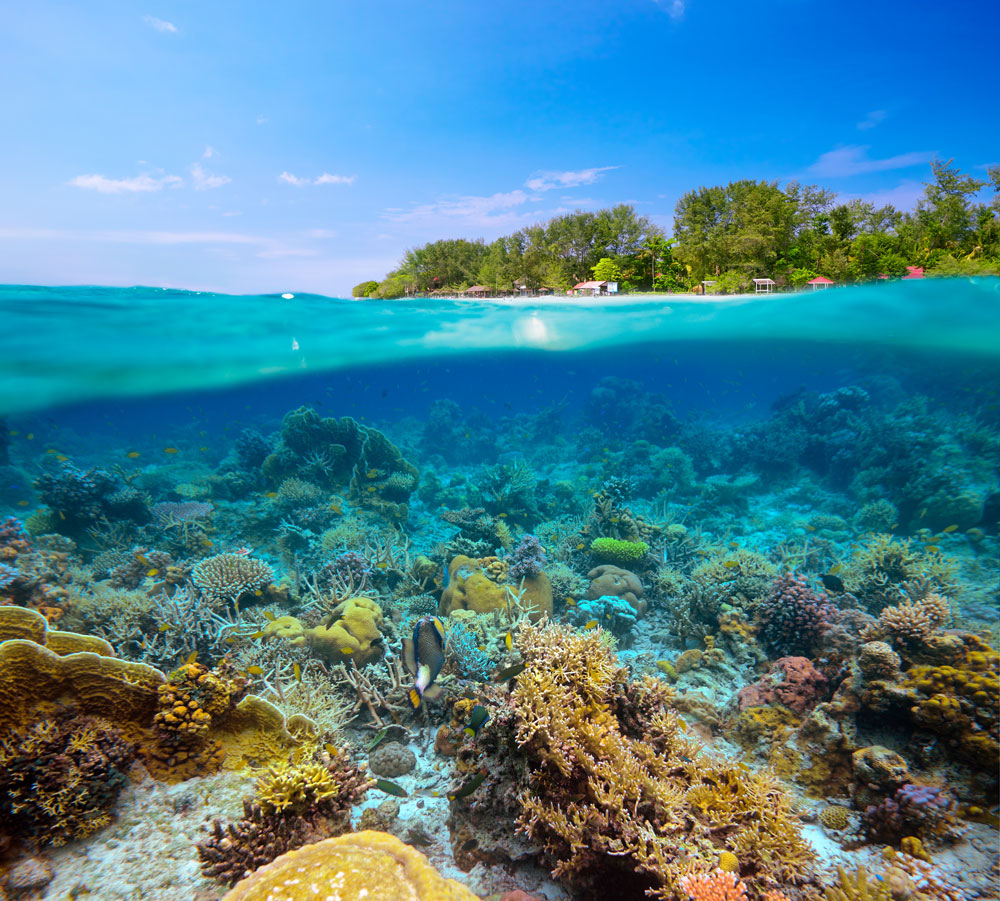
What is Marine Biology?
The definition of marine biology is the study of animals, plants and microbes in the oceans and other saltwater environments such as estuaries and wetlands. It is the study of how physical properties of the marine environment, biological interactions and human activities affect marine organisms from plankton to whales, and all the habitats from coral reefs to the open ocean. Job titles for a marine biologist include zoologist, fish and wildlife biologist, aquatic biologist, conservation biologist, marine biotechnologist and much more.
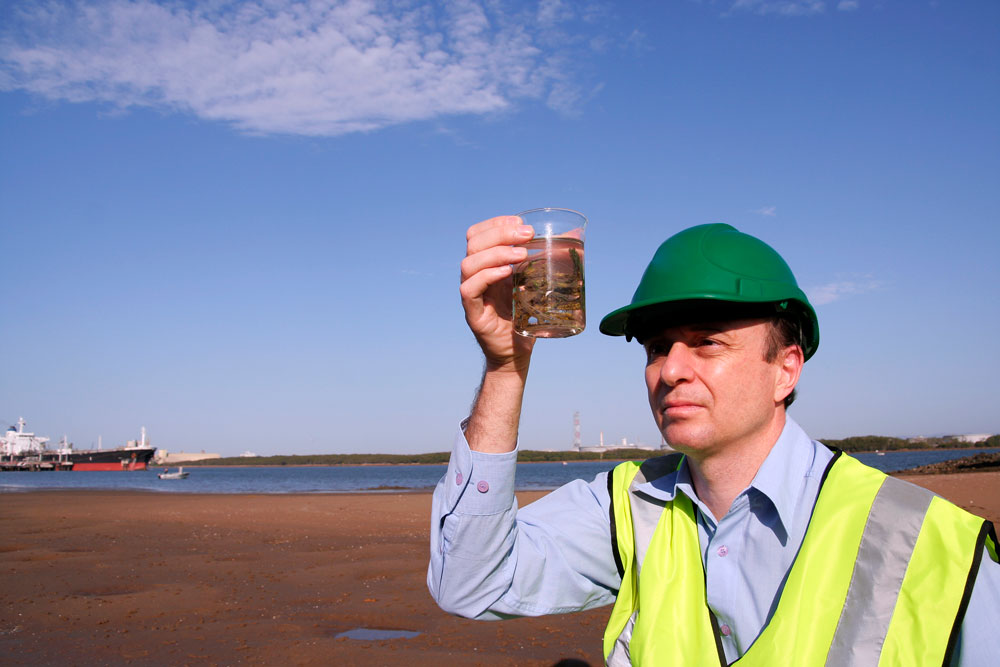
What are the Skills of a Marine Scientist?
- An analytical mind with an interest in finding answers
- Logical approach to problem solving
- Strong observation and laboratory skills
- Love of the ocean and marine life
- Keen interest in research
- Ability to work indoors or out
- Flexible in changing weather and work environments
- Excellent analysis and communication skills
How is an Oceanographer’s Job Different from a Marine Biologist?
Oceanography and marine biology are both similar and different at the same time. Read about the differences.
Oceanographer
- Collect data on ocean temperatures and salinity
- Study the plate tectonics and volcanic activity of the sea floor
- Learn how waves, currents and tides move sand on and off beaches and how it impacts erosion
 Understand how the ocean influences climate and how to measure changes
Understand how the ocean influences climate and how to measure changes- Study pollution, eutrophication and algae blooms and find restorative solutions
- Discover how the environment impacts ocean life, including dolphins, jellyfish and sea turtles
Marine Biologist
- Study whales and how water temperature affects migration of animals
- Study the effects of an oil spill on plant and animal life or how pollutants contribute to algal blooms
- Determine the impact of human activity on a coral reef
- Understand lifecycles of marine organisms and their global importance
- Uncover ways to sustain and protect ecosystems and living resources from negative human impacts
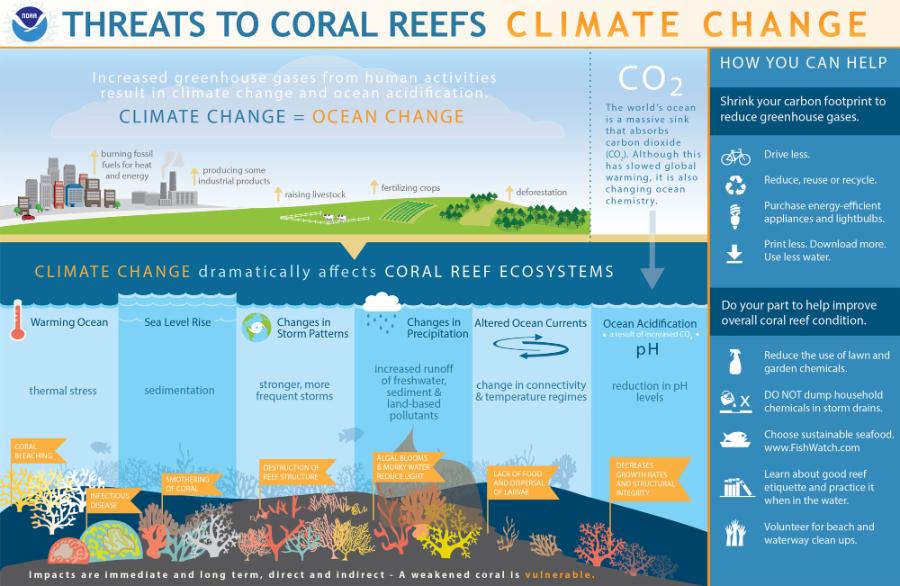
Specialties and Topics in Oceanography
What does an oceanographer do?
Biological Oceanographers ...
focus on the plants, animals and organisms that live in the ocean in relation to the systems and processes in their marine environment. A biological oceanographer incorporates a larger view of the interactions of marine organisms with each other and how the physical and chemical environment affects them.
Current Topics:
- Invasive Species
- Algae Blooms
- Jellyfish Population Blooms
- Ocean Habitats: Mangroves, Seagrasses, Salt Marshes and Coral Reefs
Chemical Oceanographers ...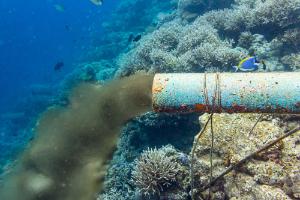 and marine chemists investigate the chemical composition of seawater and study its effect on marine organisms, the atmosphere and the ocean floor. They want to know how physical processes and exchanges with the atmosphere changes marine chemistry. Mapping chemicals founds in seawater to better understand currents, studying how carbon is buried in the seafloor (and its role in regulating greenhouse gases), and learning how the ocean is becoming more acidic are examples of the topics chemical oceanographers research.
and marine chemists investigate the chemical composition of seawater and study its effect on marine organisms, the atmosphere and the ocean floor. They want to know how physical processes and exchanges with the atmosphere changes marine chemistry. Mapping chemicals founds in seawater to better understand currents, studying how carbon is buried in the seafloor (and its role in regulating greenhouse gases), and learning how the ocean is becoming more acidic are examples of the topics chemical oceanographers research.
Current Topics:
- Nutrient Pollution
- Heavy Metals and Toxins
- Ocean Acidification
- Nutrient and Chemical Factors Driving Harmful Algal Blooms
Geological Oceanographers ...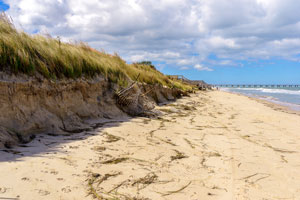 study the past and present composition of the ocean floor and explore the processes that make up and change the underwater landscape (mountains, canyons and valleys) and the shore (beaches, inlets and jetties). This includes the physical and chemical properties of rocks and sediment. Geological marine scientists also study sea-floor spreading, plate tectonics, volcanic processes and hydrothermal circulation
study the past and present composition of the ocean floor and explore the processes that make up and change the underwater landscape (mountains, canyons and valleys) and the shore (beaches, inlets and jetties). This includes the physical and chemical properties of rocks and sediment. Geological marine scientists also study sea-floor spreading, plate tectonics, volcanic processes and hydrothermal circulation
Current Topics:
- Beach Erosion, Restoration & Renourishment
- Coastal Zone Management
- Marine Sediment Transport
- Coastal Groundwater Flow
Physical Oceanographers ...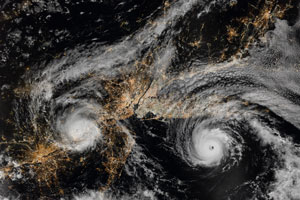 study the ocean’s physical conditions and processes, the atmosphere, seafloor and coastline. This includes researching waves, currents, eddies and tides, and the interactions between the atmosphere and the ocean that influence weather and climate. They may study how water flows around a certain land mass and help predict the processes involved in melting ice caps, sea level rise or the determination of ocean salinity.
study the ocean’s physical conditions and processes, the atmosphere, seafloor and coastline. This includes researching waves, currents, eddies and tides, and the interactions between the atmosphere and the ocean that influence weather and climate. They may study how water flows around a certain land mass and help predict the processes involved in melting ice caps, sea level rise or the determination of ocean salinity.
Current Topics:
- Climate Change
- Sea Level Rise
- Tsunami and Hurricane Strength and Frequency
- Storm Surge
- Beach Profiles
- Remote Sensing
Specialties and Topics in Marine Biology
What does a marine biologist do? Getting a bachelor’s degree in marine biology is a first step in finding a career specialty suitable to a student interested in marine science. Marine biology offers a diverse range of career opportunities including biomedical research scientist, marine biotechnologist, mammologist, ichthyologist (a type of zoologist that deals with fish), environmental consultant, veterinarian, aquarium manager, aquarist and so much more. Marine biology research involves specializations on a particular species, organism, behavior, technique or ecosystem.
Current Topics:
- Biotechnology (pharmaceutical research and development)
- Aquaculture (food supply and zero waste environmental concerns)
- Alternative Energy & Renewable Energy (algal biofuels and wave farms)
- Sustainability
- Conservation
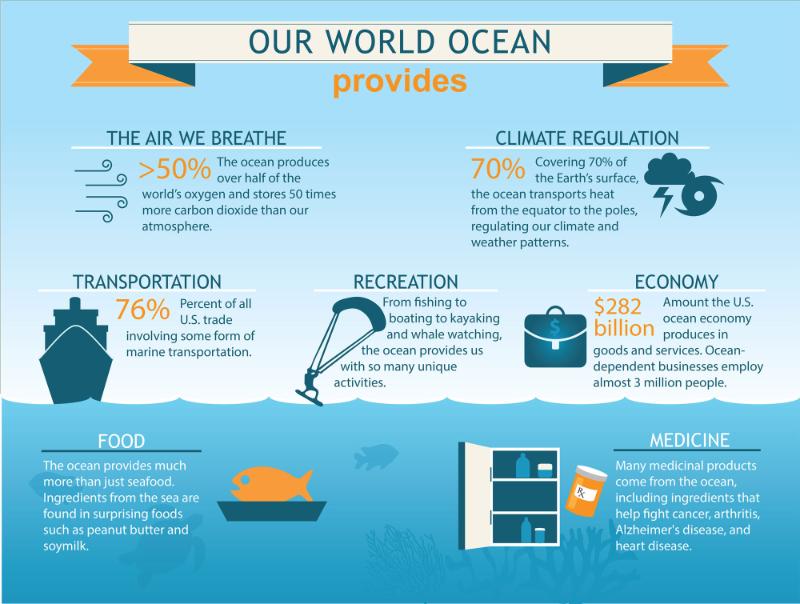
Where Do Oceanographers and Marine Biologists Work?
The Bureau of Labor Statistics Occupational Outlook Handbook reports that marine science jobs for geoscientists and oceanographers are expected to grow 14 percent through 2024, particularly in the oil and gas industry and private consulting firms. For those specializing in marine biology, employment is expected to grow 8 percent.
The future for marine biologists and ocean scientists is competitive, however growth will continue for experienced scientists as research centers, universities and other organizations conduct specialized experiments and manage current environmental issues. Marine biologists and oceanographers will find employment to solve issues including reducing carbon emissions, developing sustainable fishing methods and protecting marine habitats.
Specialists in oceanography and marine biology are employed by:
- Federal, State and Local Governments
- Scientific and Technical Consulting Firms
- Research Institutes
- Engineering Firms
- Nonprofit Organizations
- Educational Institutions
- Farms and Aquaculture Facilities
- Pharmaceutical Companies
- Theme Parks, Zoos and Aquariums
|
WHAT A BACHELOR’S DEGREE CAN DO |
WHAT A MASTER’S OR PH.D. CAN DO |
|---|---|
|
Have a foundation in advanced mathematics and biology, and chemistry |
Choose from additional research or managerial positions |
|
Find entry-level employment as an aquarist, laboratory technologist or research assistant in testing laboratories, conservation agencies and fish hatcheries |
Obtain higher salaries and locate more varied job opportunities in consulting |
|
Get wet working in or on the water |
Gain opportunities for teaching and research positions |
|
Work as an educator in zoos and aquariums |
Design and implement personal research ideas |
|
Determine area of interest for future specialization |
Publish research in journals to share with the international scientific community |
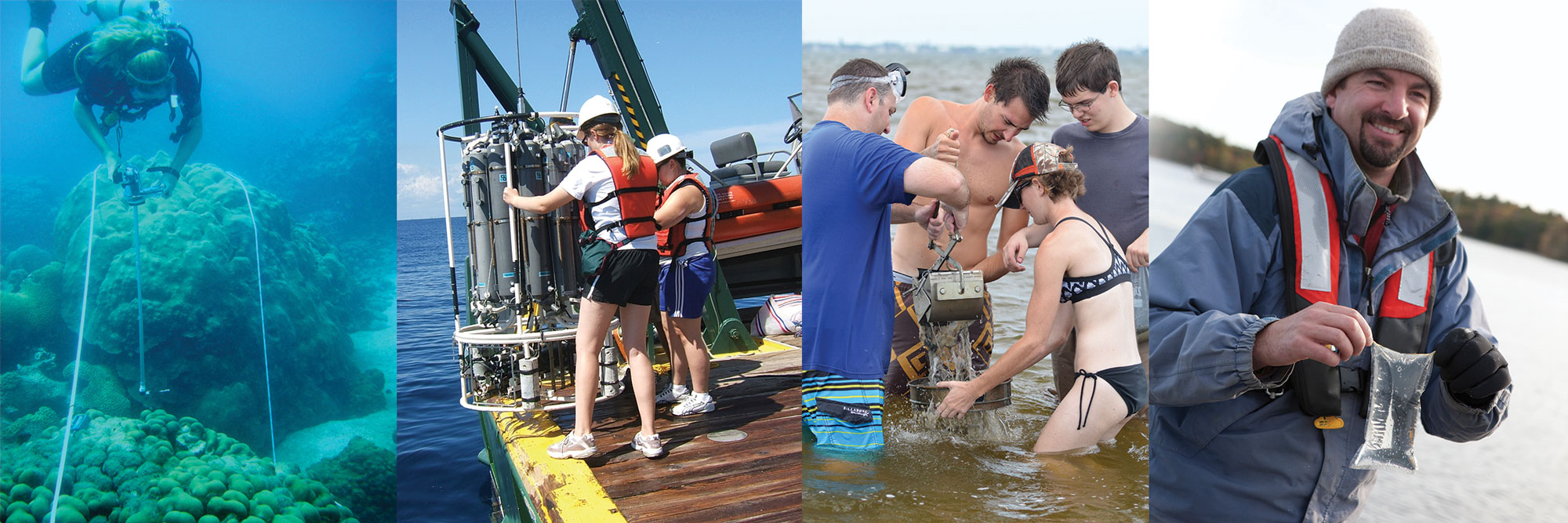
14%
Job Growth for Oceanographers and Geoscientist
8%
Job Growth for Marine Biologists
In addition to scientific work, oceanography and marine biology jobs may include such duties as planning and carrying out research expeditions, managing a research project, preparing scientific equipment, collecting and analyzing data, using computer models, writing and publishing research reports, and collaborating with marine scientists in related fields.
Salaries for Marine Scientists
 Because of the diversity of the industry and its propensity to provide employment across a variety of employment segments, there is just as wide a range of salaries for oceanographers and marine biologists.
Because of the diversity of the industry and its propensity to provide employment across a variety of employment segments, there is just as wide a range of salaries for oceanographers and marine biologists.
According to payscale.com, oceanographer’s earn between $39,037 – $108,809, averaging $58,971 per year, depending on level of experience, industry and job title. Federalpay.org reported that the National Oceanic and Atmospheric Administration hired the most employees in the past two years and that government agencies held the highest paying positions. Marine biologists earn between $31,016 – $98,759, averaging $50,926.
Studying oceanography or marine biology means working on issues like ecological balance, water quality, alternative energy, weather prediction, coastal management and pollution. It also means uncovering resources for drug research, finding solutions to fish overharvesting, or developing solutions to curb invasive species. Oceanographers and marine biologists work in private industry, government, research laboratories and the military to advance solutions on these important ocean and marine ecosystem issues that affect life on Earth.


 Give to Florida Tech
Give to Florida Tech